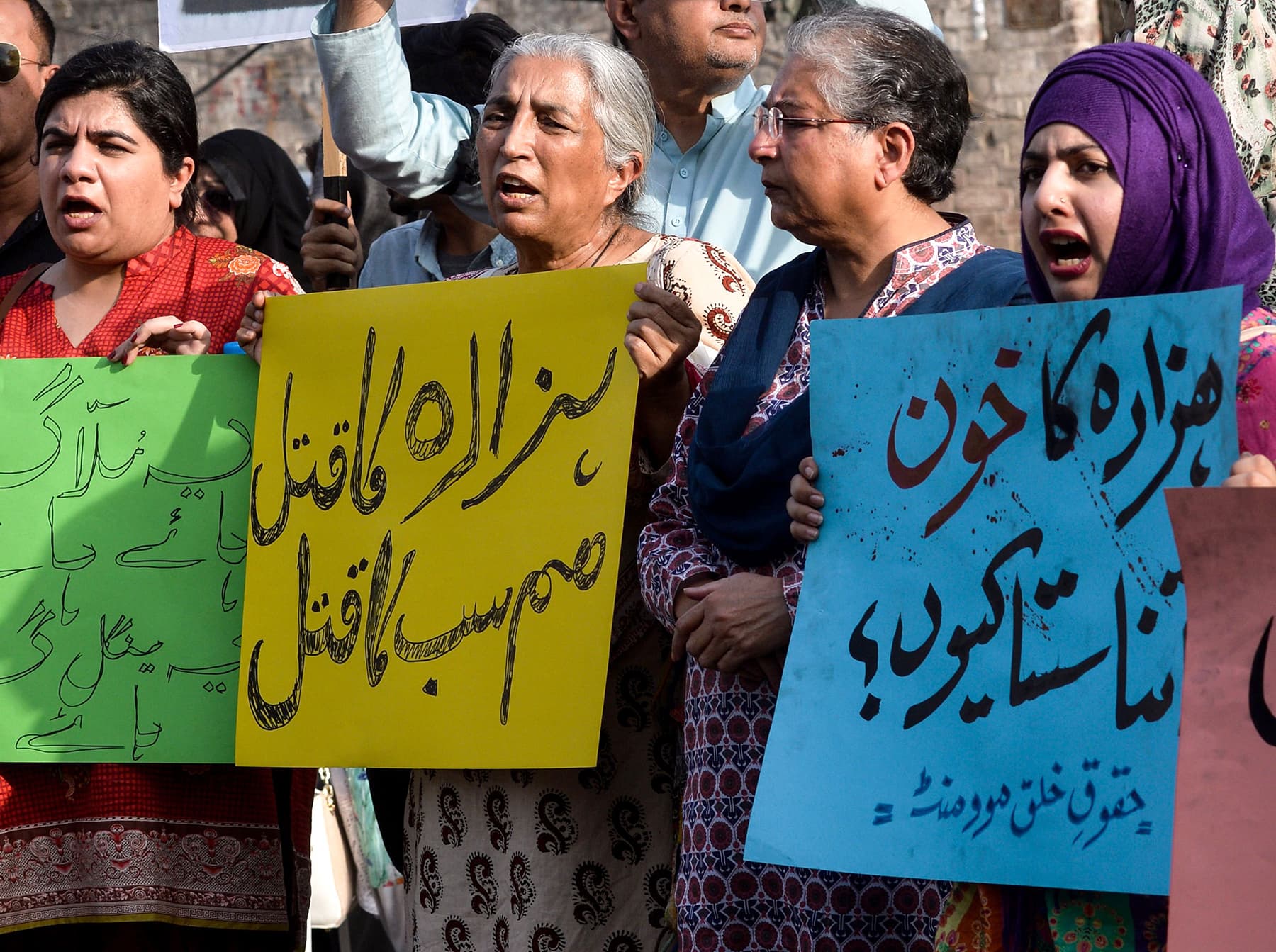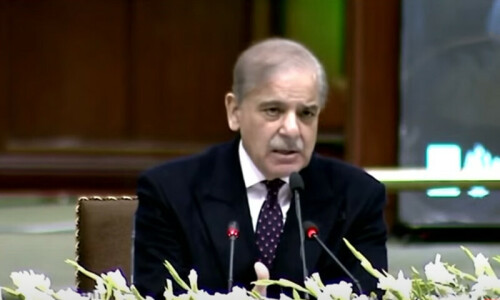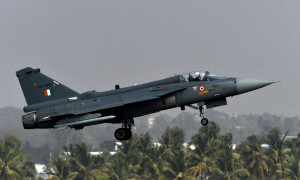A probe team comprising senior Counter-Terrorism Department (CTD) officials has been set up to investigate the Hazarganji blast as Quetta's Hazara community continued protesting the suicide attack for a third consecutive day.
The protesters did not budge from their positions and continued to stage a sit-in well into Sunday evening, despite rain, DawnNewsTV reported.
“We've lost hundreds of our loved ones in the last 10 years,” Tahir Hazara, leading the sit-in, told Reuters.
“The government failed to protect our community. Terrorists are free to target us.”
“Stop killing Hazaras,” the crowd chanted. “Down with terrorism and sectarianism.”
The protesters, who include many women and children, have set up camps and burn wood to keep warm at night. One police official said there were about 200 people taking part in the sit-in on Sunday, blocking the key arterial Western Bypass leading into Quetta.

A demonstration was held in Karachi, as well, with about 50 Hazaras, as well as several rights activists gathered at Karachi Press Club.
Balochistan Deputy Inspector General (DIG) Abdul Razzaq Cheema told DawnNewsTV that a team of CTD officials had visited the site of the attack in Hazarganji's fruit and vegetable market to collect evidence for its investigation.
The body parts of the suspected attacker have been sent to the Punjab Forensic Science Agency for DNA testing. The DIG said that the test reports, once issued, would be handed over to Balochistan Chief Minister Jam Kamal, but did not specify when they would be issued.
At least 19 people, including eight members of the Hazara community, were killed and 48 others were wounded in a suicide blast on Friday whose responsibility was claimed by the Qari Husain faction of the Tehreek-i-Taliban Pakistan as well as the militant Islamic State group.
The Hazara community staged a protest against the killings following the attack. On Saturday, despite reassurances by federal minister Ali Zaidi, the protesters refused to call off their sit-in until all their demands were met, including the arrests of those involved in the attack, steps for protection of the community, and implementation of NAP without discrimination.
Violence against Hazaras
Hazaras are disproportionately targeted by sectarian violence as they are easily identifiable due to their distinctive physical appearance.
A report released by the National Commission for Human Rights (NCHR) last year stated that 509 members of Hazara community were killed and 627 injured in various incidents of terrorism in Quetta from January 2012 to Dec 2017.
NCHR official Fazeela Alyani had earlier said that all these lives were lost in Quetta. According to the NCHR, targeted killings, suicide attacks, and bomb blasts have inflicted harm to daily life, education, and business activities of ethnic Hazara community members in Balochistan's largest city.
Alyani had also explained that the fear and intimidation forced Hazaras to migrate to foreign countries, while target killings forced Hazara students to abandon their studies.

















































